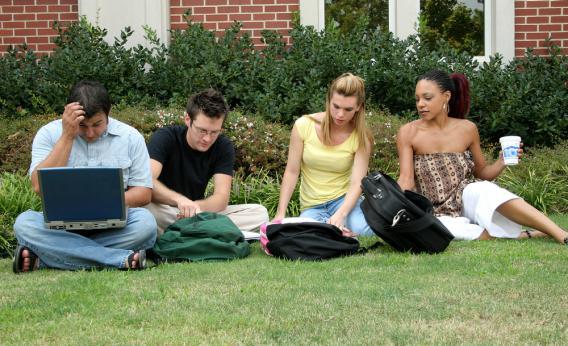For the first time, the total number of Americans who pay for a TV subscription is on pace to decline this year, Bloomberg News reports. It’s a sobering statistic for the cable industry, which has been fighting for years to thwart “cord-cutters” who ditch their subscriptions in favor of streaming video online. It’s becoming increasingly clear this is a losing battle.
It isn’t just cord-cutters who are the problem for the pay-TV industry, Bloomberg’s Ian King points out. It’s “cord-nevers“—young people who have never paid for cable or satellite TV and have no intention of doing so in the future. The piece leads with an anecdote about a 23-year-old cord-never from Mountain View who says she spends four hours in front of the TV every day just streaming shows and movies from Netflix, Amazon, and broadcasters’ websites. She describes this approach as “very typical” of people her age.
Dumb as the term “cord-never” may be—it sounds vaguely like a condition that might afflict Tobias Funke—I can vouch that Henely isn’t making this up, and the trend isn’t limited to the fresh-out-of-college set. At 31, I’m also basically a cord-never, save for a brief period when I split a Comcast bill with four roommates. (I have free Hulu to thank for my Arrested Development knowledge.) An informal survey four Slate colleagues within earshot of my desk, all of whom are between the ages of 25 and 30, finds exactly zero pay-TV subscribers. And one of them is a pop-culture blogger.
Why do we refuse to pay for cable? As the Bloomberg piece suggests, it’s partly because subscription packages are pricey, and we’re not swimming in cash. And it’s partly because you can find a decent enough selection of streaming videos either free, a la carte, or via streaming services like Netflix. But I think there’s another, underrated culprit that explains why a lot of youngish people today aren’t signing up for cable: college.
Even today, most Americans grow up with cable in their homes, their parents footing the bill. Those who go straight into the workforce and get their own apartment might continue to view cable as a high priority, if they can afford it. But a still-growing number of Americans head to four-year colleges and live in dorms where very reliable, high-speed Internet is now routinely provided but cable TV is not. As a result, they come to view fast Internet as a necessity and cable TV as a luxury, subsisting instead on scraps from YouTube, Hulu, and perhaps a little piracy—in short, the media-diet equivalent of ramen and leftover pizza. By the time they leave college, some may be starving for cable TV, but a lot have weaned themselves off of it for good.
